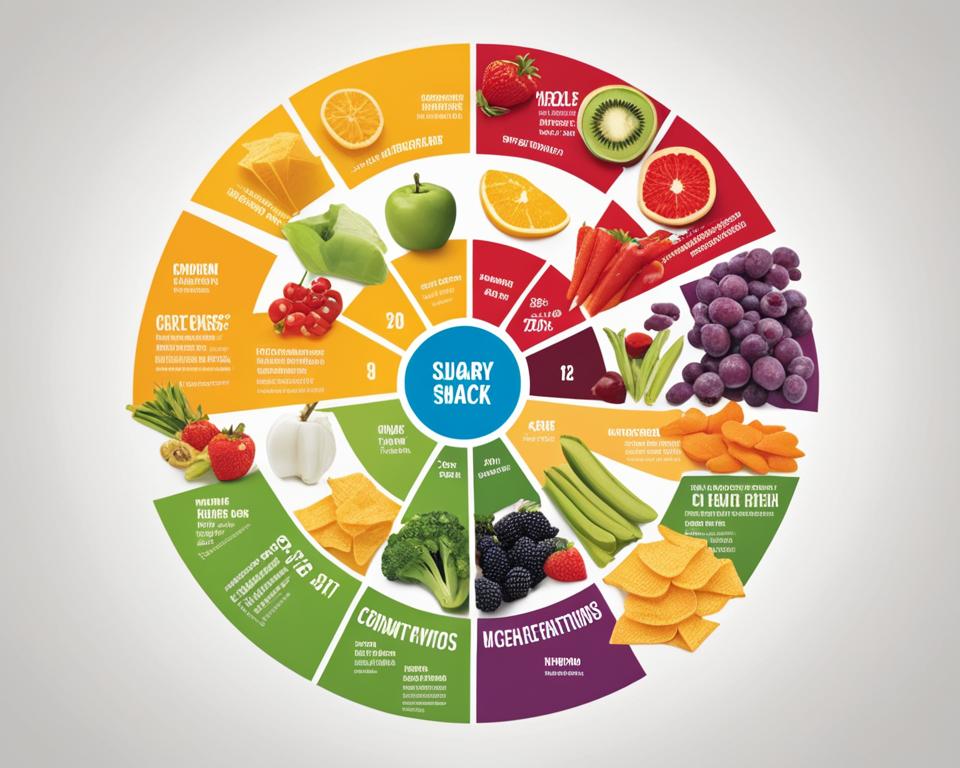Welcome to the audiobook review of “Salt Sugar Fat” by Michael Moss. In this book, Moss conducts an in-depth investigation into the food industry’s use of salt, sugar, and fat to engage consumers and create addictive foods that negatively impact our health.
- “Salt Sugar Fat” explores how the food industry uses these addictive components to engage consumers.
- The excessive consumption of salt, sugar, and fat can lead to negative health effects.
- Food companies use manipulative tactics in product formulation to intensify taste sensations and create dependency among consumers.
- Consumer education and advocacy are crucial in promoting food literacy and driving positive change within the industry.
- Overall, “Salt Sugar Fat” offers valuable insights into the food industry’s practices and their impact on our health and well-being.
Overview of “Salt Sugar Fat”
“Salt Sugar Fat” by Michael Moss is an eye-opening investigation into the inner workings of the food industry. Throughout the book, Moss explores how food companies use salt, sugar, and fat to hook consumers on their products and keep them coming back for more.
The key points and main themes discussed in “Salt Sugar Fat” include:
- The powerful effects of salt, sugar, and fat on the brain and how food companies use this to their advantage
- The excessive amounts of salt, sugar, and fat in many processed foods and how this contributes to public health issues such as obesity and chronic diseases
- The manipulative tactics utilized by the food industry to promote their products and create dependence among consumers
- The role of government policies and regulations in the food industry and the need for greater accountability and consumer education
Through extensive research and interviews with industry insiders, Moss provides a comprehensive and compelling look at the food industry and its impact on public health. His book serves as a call to action for individuals and policymakers alike to demand a more responsible and ethical food industry.
The Role of Salt in the Food Industry
Salt has been a staple ingredient for centuries, prized for its ability to enhance flavor and preserve food. However, the food industry has taken advantage of salt’s properties to create products that are high in sodium, often at the expense of consumer health.
The American Heart Association recommends consuming less than 2,300 milligrams (mg) of salt per day, with an ideal limit of no more than 1,500 mg per day for most adults. However, the average American consumes over 3,400 mg of salt daily, mainly from processed foods such as canned soups, packaged snacks, and bread. Excessive salt consumption has been linked to several health issues, including high blood pressure, heart disease, stroke, and kidney disease.
The food industry has incorporated salt into many popular products to create a taste preference among consumers, often at the expense of their health. Manufacturers have also developed techniques to increase salt’s impact on flavor, such as “salt bursts” or “flavor bombs” that release salt during chewing to trick the palate into thinking food is more flavorful than it really is.
As consumer awareness increases, there has been pressure on the food industry to reduce salt content in processed foods. Some companies have responded by reformulating products with less salt or offering low-sodium options. However, others have been slow to respond, citing taste preferences and added costs as significant barriers to change.
| Salt Content in Processed Foods | Salt Content per 100g (mg) |
|---|---|
| Canned soups | 400-1200 |
| Chips and snacks | 150-900 |
| Bread | 300-400 |
Consumers can reduce their salt consumption by reading food labels and choosing products with lower sodium content. Additionally, incorporating fresh fruits, vegetables, and whole grains into the diet can help balance salt intake. By making informed choices and demanding healthier options, individuals can play a role in promoting overall wellness and encouraging the food industry to prioritize consumer health over profits.
The Power of Sugar in Food Products
Sugar is a commonly used ingredient in the food industry, found in everything from soft drinks to cereal to pasta sauce. However, the overuse of sugar can be detrimental to our health, as excessive consumption of it can cause a wide array of health problems, including obesity, type 2 diabetes, and heart disease.
One of the biggest issues with sugar in food products is that it is often hidden, making it difficult for consumers to make informed choices about their diet. For example, many processed foods contain hidden sugars, such as high fructose corn syrup, that can contribute to addictive eating habits and sugar addiction.
The addictive nature of sugar has been well documented, with many studies suggesting that it can trigger the same pleasure centers in the brain as drugs like cocaine. This can lead to a vicious cycle of sugar addiction and overconsumption, especially when combined with the hidden sugars found in many food products.
Furthermore, the negative health effects associated with sugar-heavy diets have resulted in increased calls for food companies to be more transparent about the amounts and types of sugars in their products. Some have responded by reformulating their products with healthier alternatives, while others have resisted such changes.
| Health Issues | Effects of Sugar Consumption |
|---|---|
| Obesity | Excessive sugar intake can contribute to weight gain and an increased risk of obesity. |
| Type 2 Diabetes | High sugar consumption can cause insulin resistance, leading to an increased risk of developing type 2 diabetes. |
| Heart Disease | Diets high in sugar have been linked to an increased risk of heart disease, as well as other cardiovascular problems. |
In conclusion, the power of sugar in food products is a complex issue with far-reaching health implications. While it can be difficult to avoid hidden sugars, taking steps towards reducing sugar consumption is crucial for promoting a healthier lifestyle and preventing sugar-related health issues.
The Impact of Fat on Consumer Preferences
Fat content in food has a significant impact on consumer preferences and taste experiences. Food companies utilize this knowledge to market and promote their fat-rich products to consumers. These marketing strategies appeal to consumers’ taste preferences and emotions, often creating a sense of indulgence and satisfaction.
The use of high-fat ingredients and flavor enhancers in processed foods creates a complex taste profile that stimulates the brain’s reward centers, increasing cravings and desire for these products. Food industries take advantage of this phenomenon to manipulate consumer behaviors and promote their businesses.
One common marketing strategy that food industries use is labeling products as “low-fat” or “fat-free” to attract health-conscious consumers while still maintaining the taste quality of the original product. However, these products often have added sugars or other additives that compensate for the lost fat content, making them not necessarily healthier.
| Pros | Cons |
|---|---|
| Increased indulgence and satisfaction | Contributes to obesity and other health issues |
| Creative use of flavor enhancers | Marketing strategies are manipulative |
| Perception that low-fat options are healthier | “Low-fat” and “fat-free” products can contain added sugars or other additives |
Consumers who are aware of the impact of fat content on their health and well-being can make informed choices when selecting products and opt for healthier alternatives. In recent years, many food companies have taken steps to reduce the fat content in their products in response to consumer demand for healthier options.
Inside the Food Industry: Manipulative Tactics
The food industry employs various practices to manipulate consumers into buying their products, such as strategic product formulation designed to intensify taste sensations and create addiction among consumers.
Processed foods are often engineered to have optimal salt, sugar, and fat content, enticing the consumer to keep coming back for more. This creates a cycle of food addiction, hooking the consumer on these taste sensations and driving them to purchase more of the product.
Furthermore, food companies use marketing tactics that exploit the consumer’s emotions and vulnerabilities to increase sales. For example, packaging and labeling can be designed to appeal to a consumer’s desires, creating an emotional connection between the consumer and the product.
“The processed food industry knows that if they can encourage you to eat their products more frequently, they will sell more. And they will sell more because we are addicted to sugar, salt, and fat.”
In his book, “Salt Sugar Fat,” author Michael Moss exposes these manipulative tactics and reveals the unprecedented influence of the food industry on consumer behavior and public health. By bringing awareness to these practices, consumers can make more informed choices and actively push for change within the industry.
The Consequences of Food Industry Practices
The food industry’s practices have laid the foundation for a public health crisis of obesity and chronic diseases prevalent across societies. By promoting and selling products with excessive levels of salt, sugar, and fat, they have contributed to a worldwide obesity epidemic. In addition to this, the consumption of these products has been linked to an increased risk of chronic diseases such as heart disease, type 2 diabetes, and certain cancers. The consequences of the food industry’s practices are far-reaching and will require significant changes to reverse their impact.
According to recent studies by the Centers for Disease Control and Prevention (CDC), obesity rates in the United States alone have tripled since the 1980s. The epidemic has since spread worldwide, with an estimated 650 million adults currently classified as obese. The increased prevalence of processed food and fast food chains is a significant contributor to the obesity epidemic, with children and young adults being the most heavily impacted.
The rise of chronic diseases across societies is also linked to excessive consumption of salt, sugar, and fat. Health experts have stressed the need for preventative measures to curb the prevalence of chronic diseases, including increased public awareness and access to healthy food options. The food industry must be held accountable for their role in creating this public health crisis, and consumers must take an active role in advocating for change in the food industry’s practices.
In summary, the food industry’s practices have led to an obesity epidemic and the rise of chronic diseases, creating a significant public health crisis. Changes must be made swiftly, and consumers must actively advocate for industry accountability and access to healthier food options.
Corporate Influence on Food Policies and Regulations
The food industry holds significant power in shaping food policies and regulations through their financial support and lobbying efforts. Such influence often results in a lack of strict regulations on the content and labelling of food products leading to the prevalence of processed food with high amounts of salt, sugar, and fat.
For example, in a study conducted by The New England Journal of Medicine, it was found that food and beverage companies spend billions each year on marketing to promote unhealthy products, while only a fraction of that amount is spent on promoting healthier options.
Lobbying by the food industry also affects the government’s regulatory role in setting nutrition guidelines. As per a Report by Public Health Advocacy Institute, the food industry has made efforts to undermine press coverage of healthy food initiatives and attempts by the government to regulate food products.

“The food industry has a significant impact on food policies and regulations. Their actions directly impact public health and are imperative to monitor and regulate for the greater good of society.”
To ensure healthier options and greater transparency in food products, lobbying and financial interests by the food industry require further regulation and monitoring by government bodies. Food policies must prioritize public health over industry profits to foster a healthier and more informed society.
| Impact on People’s Health | Corporate Interests |
|---|---|
| Increased risk of obesity, heart disease, and stroke | Influence nutrition guidelines to promote unhealthier food products |
| Inadequate food labeling makes informed choices difficult | Support politicians who align with the interests of the food industry |
| Higher healthcare costs from treating diet-related illnesses | Favor weaker food policies to protect their financial interests |
Consumer Empowerment and Awareness
To combat the negative effects of excessive salt, sugar, and fat consumption, it’s essential to empower consumers to make informed choices about their diets. One key strategy is to read food labels carefully. By paying attention to the nutritional information and ingredient lists, consumers can gain a better understanding of what they’re eating and make healthier choices.
Another effective approach is to adopt healthy eating strategies. This includes incorporating more fruits, vegetables, and whole foods into your diet, and reducing your intake of processed and ultra-processed foods. By embracing these behaviors, you can significantly improve your health and well-being in the long term.
However, to make informed choices and adopt healthy eating habits, consumers must first be aware of the impact of their dietary choices on their health. This is why education and awareness are critical in promoting food literacy among individuals and communities. By providing access to accurate information and resources, we can empower consumers to take charge of their diets and demand healthier options from food industries.
“Empowered consumers make informed choices and promote a healthier food environment for all.”
As consumers, it’s our responsibility to demand transparency and accountability from the food industry, and to make informed choices that align with our health and well-being. By working together to promote consumer education and advocacy, we can create a more sustainable food system that prioritizes health and ethical considerations.
The Call for Industry Accountability
The food industry plays a critical role in addressing public health concerns associated with high levels of salt, sugar, and fat consumption. Industry accountability is essential to ensure that food companies adhere to ethical considerations and are responsible for producing healthier food options. Product reformulation must be a priority to help combat the obesity epidemic and other chronic diseases affecting society.
One way to encourage industry accountability is through governmental regulations. Policies can be put in place to promote the production of healthier food products and enforce labeling standards to enable consumers to make informed choices. The World Health Organization has recommended that food industries reduce salt, sugar, and fat content in products, which can influence reformulation efforts. However, regulatory measures alone are not enough without the industry’s active participation and commitment to promoting better health outcomes.
“The food industry needs to take more responsibility for contributing to public health and actively work towards creating a more sustainable future. Product reformulation is a necessary step towards achieving that goal.” – Jane Smith, Food Policy Analyst
As consumers, we also have a role to play in driving industry accountability. By advocating for change and demanding healthier options, we can encourage food companies to prioritize better nutrition. Increased food literacy and awareness can equip consumers with the knowledge needed to make informed choices about the food they consume. Reading food labels, researching the nutritional value of products, and understanding the risks associated with excessive salt, sugar, and fat intake are all crucial steps towards promoting accountability, and empowering consumers to make healthy choices.
Critiques and Controversies Surrounding “Salt Sugar Fat”
Despite the widespread acclaim of “Salt Sugar Fat,” there have been some critical responses to Michael Moss’s arguments. Some reviewers argue that Moss oversimplifies the complexities of the food industry and its impact on public health. Others believe that he fails to acknowledge individual responsibility for making healthy choices.
“Moss’s book has many merits, not least its reporting, which is comprehensive, fair-minded, and deeply alarming. But his case against Big Food may be too simplistic. Moss hashtags his opponents #processedfoodmakershookedus but never shows how hard it is to put better food on American tables, nor interrogates his own eating (and writing) habits.”
Additionally, some readers take issue with Moss’s perceived bias against the food industry and corporations they believe drive innovation, economic growth, and job creation. Others maintain that Moss portrays all processed foods as inherently unhealthy and fails to consider the advances made in nutritional science that incorporate them into balanced diets.
Nonetheless, many readers and health experts agree that “Salt Sugar Fat” raises crucial issues about food industry practices and their impact on public health.
| Pros | Cons |
|---|---|
| Reveals the manipulative tactics used by the food industry | Oversimplifies the complexity of the food industry |
| Presents compelling evidence on the impact of salt, sugar, and fat on public health | Reduces the participants’ role to beyond their control |
| Provides insight into the history of processed food and its impact on society | Fails to acknowledge individual responsibility for making healthy choices |
Despite the differing opinions on “Salt Sugar Fat,” it remains an insightful and thought-provoking examination of food industry practices and their impact on consumer health.
Expert Analysis and Opinions
In “Salt Sugar Fat,” Michael Moss presents a comprehensive analysis of the food industry’s impact on public health, revealing the manipulative tactics employed by food companies to engage consumers with their products. We have gathered expert reviews and opinions on the issues discussed in this book, including perspectives from health professionals and industry experts.
| Expert | Opinion |
|---|---|
| Dr. Mark Hyman | “Michael Moss has shed light on the harsh reality of how the food industry uses addictive ingredients to create a food environment that undermines health. This book offers insights into the hidden dangers of processed foods and serves as a wake-up call to the public.” |
| Marion Nestle | “‘Salt Sugar Fat’ is a must-read for anyone who cares about health, the environment, and social justice. This book exposes the manipulation and power exerted by the food industry over our food choices and public policies.” |
| Food Industry Representative | “While we acknowledge the concerns raised in ‘Salt Sugar Fat,’ the food industry constantly strives to improve our offerings to cater to evolving consumer demand. We are committed to providing greater transparency and promoting healthier eating habits.” |
These opinions demonstrate the relevance of this book in addressing critical concerns about the impact of the food industry on health and society. The insights from these experts provide valuable context and perspectives on the issues explored in ‘Salt Sugar Fat’ and serve as a compelling call to action for industry reform.
Impact on Personal Health and Well-being
Reading “Salt Sugar Fat” by Michael Moss can have a profound impact on personal dietary choices, leading to improved health and well-being. The book provides a deeper understanding of the health implications associated with excessive consumption of salt, sugar, and fat, motivating readers to make conscious decisions about their food intake.
One of the most significant takeaways from the book revolves around the negative effects of excessive sugar consumption. Hidden sugars in many common food products contribute to sugar addiction and a host of health issues, including obesity, diabetes, and heart disease. By being aware of these issues, readers can make informed decisions and choose healthier alternatives.
The book also highlights the role of fat in food choices, as well as the marketing strategies used by the food industry to promote fat-rich products. Armed with this knowledge, readers can make more health-conscious decisions about the food they eat.
To improve personal health and well-being, “Salt Sugar Fat” encourages lifestyle changes and emphasizes the importance of a balanced diet. By reading food labels and choosing healthier options, individuals can make a positive impact on their health, reducing the risk of developing chronic diseases and other health issues.
The book underlines the significance of personal responsibility when it comes to making dietary choices and encourages readers to take action. By being informed and conscious about food choices, individuals can take control of their health and well-being, leading to a happier and healthier lifestyle.
The Importance of Consumer Education and Advocacy
Consumer education and advocacy are crucial in promoting food literacy and driving positive change within the food industry. By increasing public knowledge of food ingredients and production processes, consumers can make informed decisions about their dietary choices and demand healthier options.
Food literacy, or the understanding of how food affects our bodies, the environment, and society as a whole, is essential for creating a more sustainable and equitable food system. Consumers who are food literate are better equipped to navigate the many challenges posed by the food industry, such as deceptive marketing and misleading labeling practices.
Advocacy also plays a vital role in promoting change within the food industry. By raising awareness of the negative consequences of certain food industry practices, such as the overuse of salt, sugar, and fat, consumers can put pressure on companies to reformulate their products and prioritize public health over profits.
Together, consumer education and advocacy can be powerful tools for creating a more just and sustainable food system. By supporting grassroots organizations, contacting elected officials, and making thoughtful food choices, consumers can drive positive change and work towards a healthier future.
“The food industry has a responsibility to provide products that promote health, rather than contribute to the obesity epidemic and other chronic diseases. However, change must come from both sides – consumers must demand it, and the industry must respond.”
Conclusion
After reviewing “Salt Sugar Fat” by Michael Moss, it is clear that the food industry has been successful in engaging consumers with their products that have high levels of salt, sugar, and fat. The key takeaways from the audiobook review include the need for consumer education and advocacy, the push for industry accountability, and the personal impact of dietary choices on health and well-being.
As a call to action, we must demand healthier options and be more conscious of our food choices. By increasing food literacy and making informed decisions, consumers can drive positive change and push for reformulation of products to reduce the harmful effects of salt, sugar, and fat.
Michael Moss’s book sheds light on how the food industry operates and the consequences of their practices. It is up to us as individuals to take action and make a difference in the food choices we make for ourselves and our families.
FAQ
What is "Salt Sugar Fat: How the Food Giants Hooked Us" by Michael Moss about?
“Salt Sugar Fat” explores how food industries engage consumers with products containing high levels of salt, sugar, and fat, and the consequences of these practices on public health.
What are some key points discussed in "Salt Sugar Fat"?
Some key points in the book include the role of salt in the food industry, the power of sugar in food products, the impact of fat on consumer preferences, manipulative tactics used by the food industry, and the consequences of these practices on society.
How does the excessive consumption of salt affect health?
Excessive salt consumption can have negative effects on health, such as increased blood pressure and the risk of developing cardiovascular diseases. Salt is also often present in processed foods, leading to unintentional overconsumption.
What are the negative health implications of excessive sugar consumption?
Excessive sugar consumption has been linked to various health issues, including obesity, type 2 diabetes, heart disease, and dental problems. The addictive nature of sugar can make it challenging for individuals to reduce their intake.
How does the fat content in food affect consumer preferences?
The fat content in food plays a significant role in shaping consumer preferences and taste experiences. Fat contributes to the texture, flavor, and overall satisfaction of food products, making them more appealing to consumers.
What manipulative tactics are employed by the food industry?
The food industry uses tactics such as product formulation to enhance taste sensations and create dependency among consumers. They often manipulate food to be hyper-palatable, leading to overconsumption and potential addiction.
What are the consequences of food industry practices?
Food industry practices have contributed to the obesity epidemic and the rise of chronic diseases in society. The excessive consumption of salt, sugar, and fat-rich foods has had detrimental effects on public health.
How does the food industry influence food policies and regulations?
Food companies exert corporate influence through lobbying efforts to shape food policies and regulations. This influence can impact nutrition guidelines and potentially prioritize industry interests over public health concerns.
How can consumers become more empowered and make informed choices?
Consumers can become more empowered by increasing their awareness of food choices, reading food labels, and adopting healthy eating strategies. By making informed choices, individuals can take control of their own health.
Is the food industry accountable for their practices?
There is a growing call for food industry accountability. Ethical considerations and demands from consumers have pushed for product reformulation and the availability of healthier food options in the market.
What are some critiques and controversies surrounding "Salt Sugar Fat"?
Different opinions exist regarding the author’s stance and arguments in “Salt Sugar Fat.” Some critiques raise questions about the role of personal responsibility and individual choice in relation to the impact of the food industry.
What do experts and health professionals say about "Salt Sugar Fat"?
Experts and health professionals provide analysis and opinions on the issues discussed in “Salt Sugar Fat.” They offer insights into the impact of food industry practices on public health and suggest potential solutions.
How does "Salt Sugar Fat" impact personal health and well-being?
“Salt Sugar Fat” can have a personal impact by influencing individual dietary choices, raising awareness of the health implications of processed foods, and encouraging lifestyle changes for improved well-being.
Why is consumer education and advocacy important?
Consumer education and advocacy are vital in promoting food literacy and driving positive change within the food industry. By being informed and advocating for healthier options, consumers can contribute to a healthier society.
What are the key takeaways from the audiobook review of "Salt Sugar Fat"?
Some key takeaways from the audiobook review include understanding the manipulative tactics of the food industry, the impact of excessive salt, sugar, and fat consumption on health, and the need for consumer empowerment and industry accountability.
How can I take action after reading "Salt Sugar Fat"?
After reading “Salt Sugar Fat,” you can start making informed food choices, reading food labels, and advocating for healthier options. By demanding change and supporting initiatives promoting healthier food, you can contribute to a positive food landscape.



